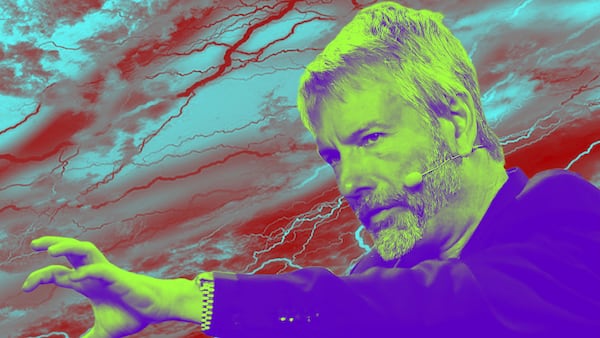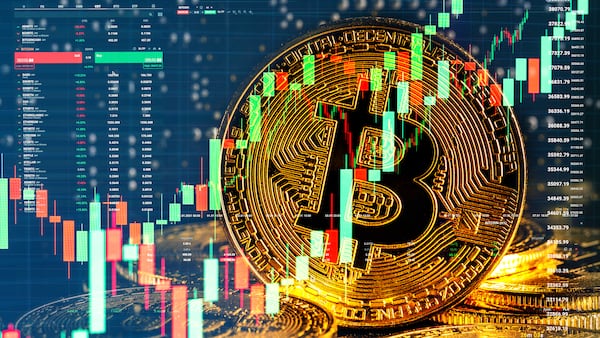- Higher than expected inflation figures may prevent the Federal Reserve from cutting interest rates.
- However, the rising US budget deficit could soon force the central bank to issue more US dollars.
- Wall Street may turn to Bitcoin and other assets with strict supplies to hedge against renewed inflation.
Bitcoin may soon play a significant macroeconomic role.
The ballooning US budget deficit, coupled with rising interest payments, could force the Federal Reserve to issue more US dollars to buy more debt, according to Noelle Acheson, former head of market insights at Genesis.
And that would lead Wall Street to turn to Bitcoin as an inflation hedge.
“Portfolios will increasingly need the diversification potential of assets with a hard supply cap,” Acheson wrote in a Friday issue of her “Crypto is Macro Now” newsletter. “And even old-school bankers will start to realise that Bitcoin is not just about speculation.”
Increased deficit
The US deficit has increased by almost 20% since the start of the fiscal year in October, Acheson said, referring to a recent report from the US Treasury. And interest payments now make up more than 16% of the government’s expenses, she said.
The deficit will likely keep growing at an accelerating pace for two reasons, Acheson said.
First, cuts to social expenditure would be unpopular in an election year. Second sticky inflation makes it unlikely for interest costs to come down right away.
“Unless domestic and foreign demand for US debt keeps pace with the acceleration of issuance, US [Treasury] yields will remain elevated, pushing the interest burden even higher,” Acheson said.
A way to decrease that burden, she said, would be for the US central bank to bring back its quantitative easing programme — in other words, print the dollars it needs in order to buy the unwanted debt.
“Either way, the supply of dollars is likely to head up at an accelerating rate,” she said.
Beneficial to Bitcoin
Other analysts agreed that deficit concerns were beneficial to Bitcoin and the rest of the crypto ecosystem.
“Bitcoin has been liking it,” Quinn Thompson, head of growth at Maple Finance, told DL News. “The price action of gold is another signal that’s telling you that overall monetary policy is in a trapped place.”
The government has a “bias towards easing, lowering rates, and keeping things loose on the monetary policy front despite the strong inflation and fiscal spending,” Thompson said. “And that’s putting inflation assets like gold and Bitcoin into bull market territory.”
The record inflows garnered by spot Bitcoin exchange-traded funds may partially be due to worries around increased government debt levels, Brian Rudick, senior strategist at crypto trading firm GSR, told DL News.
Inflation and the Fed
On Wednesday, the Federal Reserve is scheduled to reveal whether federal interest rates will be cut, hiked, or kept at the 5% to 5.25% level.
The US central bank signalled in February that it was looking to cut rates. But consumer and production price metrics recently showed that inflation remained higher than anticipated, making it more likely for rates to stay unchanged.
“The cumulative effect of the week’s bad news on inflation jolted Bitcoin out of its confident climb,” Acheson said.
Bitcoin is down 12% since its March 14 all-time high of $73,500.
“We expect further hawkish commentary and a reiteration of [the Federal Reserve’s] recent message that it needs to obtain greater confidence that inflation is headed towards its 2% target before it can begin to ease policy,” Rudick told DL News.
Interest rate cuts would benefit Bitcoin, as risk assets tend to perform better when rates are low. With lower rates savings become less desirable and investors need to look for returns elsewhere.
Leaving rates untouched — or raising them even more — would pose a short-term headwind for Bitcoin, Redick said.
“Drops like this serve as a reminder that Bitcoin will never totally decouple from macro drivers,” Acheson said.
”However, currency dilution continues and is likely to take the investment narrative mantle again once the market calms down.”
Tom Carreras is a markets correspondent for DL News. Got a tip about inflation, the Fed, and Bitcoin? Reach out at tcarreras@dlnews.com




